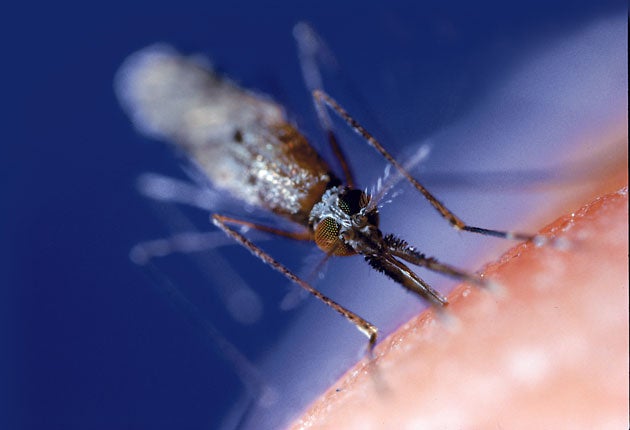Seaweed may be the key in the fight against malaria parasite

Your support helps us to tell the story
From reproductive rights to climate change to Big Tech, The Independent is on the ground when the story is developing. Whether it's investigating the financials of Elon Musk's pro-Trump PAC or producing our latest documentary, 'The A Word', which shines a light on the American women fighting for reproductive rights, we know how important it is to parse out the facts from the messaging.
At such a critical moment in US history, we need reporters on the ground. Your donation allows us to keep sending journalists to speak to both sides of the story.
The Independent is trusted by Americans across the entire political spectrum. And unlike many other quality news outlets, we choose not to lock Americans out of our reporting and analysis with paywalls. We believe quality journalism should be available to everyone, paid for by those who can afford it.
Your support makes all the difference.A red seaweed found off the Pacific island of Fiji has been found to contain a powerful class of natural substances that can effectively destroy the malaria parasite, scientists said yesterday.
The first laboratory tests have shown that the substances are toxic to the Plasmodium falciparum parasite which causes the most dangerous form of malaria and is developing disturbing resistance towards existing drugs.
Researchers believe that the substances, called bromophycolide compounds, are produced by the seaweed as a chemical defence against attack from marine fungi. But they also appear to be effective against the malaria parasite, said Julia Kubanek of the Georgia Institute of Technology.
"The seaweed is marshalling its defences and displaying them in a way that blocks the entry points for microbes that might invade and cause disease. Seaweeds don't have immune responses like humans do. But instead, they have some chemical compounds in their tissues to protect them," Dr Kubanek said.
"The bromophycolide structural class is unique... there are no antimalarials like it. Even though it looks like the mode of action may be similar to that of chloroquine and other quinine antimalarials, our bromophycolides are effective in vitro against a chloroquine-resistant strain," she said.
"That means that the resistance mechanism that the parasite has evolved to the quinines does not work against bromophycolides," she said.
One of the most powerful anti-malarial drugs at present is artemesinin, which was derived from a shrub used in Chinese herbal medicine, but in some regions of the world drug-resistance has already developed against it, which is why scientists are interested in finding alternative anti-malarials.
The tests in the test tube need to be repeated in animal models before the drug, which can be synthesised in the laboratory, can be used in clinical trials, Dr Kubanek said.
"We need to show that bromophycolides are effective in a mammalian model, since no in vivo work has been done yet. We may need to design a more potent and more selected derivative, since even in vitro we see effects on non-parasite cells," she said.
"Bromophycolides are not as potent as artemesinin and we don't yet now how fast they work in humans, or even if they work in humans. So much work is left to be done. But we are hopeful that we will be able to design a strong antimalarial from this lead," Dr Kubanekadded.
Meanwhile, scientists have warned against the spread of a new Madagascan malaria that infects previously immune individuals, threatening a new scourge of infection. The strain of Plasmodium vivax has broken through a natural genetic barrier that until now has protected millions of Africans.
Scientists say there are already signs of the strain spreading from the island of Madagascar to the east African mainland. In some regions they believe it could take over from Plasmodium falciparum as the continent's dominant malaria strain.
Subscribe to Independent Premium to bookmark this article
Want to bookmark your favourite articles and stories to read or reference later? Start your Independent Premium subscription today.
Join our commenting forum
Join thought-provoking conversations, follow other Independent readers and see their replies
Comments